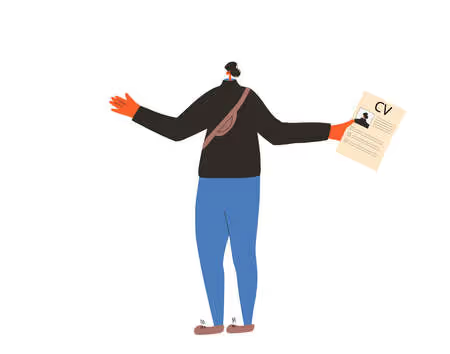What is casual employment?
Casual employment refers to the system of hiring employees on a work-as-needed basis, meet the staffing needs of the company during peak business periods. In the system of casual employment, the employee’s services can be terminated without notice.
A casual employee is usually hired as a replacement for a permanent full-time employee who may be out on a long-term absence. They are paid only for the actual time worked and don’t receive the benefits of full-time employment such as paid time-offs or leaves of any kind.

What are the employment agreements for casual employment?
While developing the agreement for casual employment, employers should make its practice to attach a clause on the hours of work to include:
- How the workload will often change.
- How a casual employee will be advised of work.
- And that they are not obligated to make themselves available for work.
What are the benefits of casual employment?
1. Flexibility: Casual employees often have the freedom to choose their work hours, allowing them to balance work with personal commitments.
2. Variety of Work: Casual employment can offer opportunities to work in different roles and industries, gaining diverse experiences and skills.
3. Higher Hourly Rates: Casual employees may receive higher hourly pay rates compared to permanent employees to compensate for the lack of benefits like paid leave.
4. Work-Life Balance: The ability to decline shifts and work intermittently can help casual employees maintain a better work-life balance.
5. Opportunities for Additional Income: Casual employment can be a great way to supplement income, especially for students, retirees, or those with other primary commitments.
6. Trial for Permanent Positions: Casual roles can serve as a stepping stone to permanent employment, allowing both employers and employees to assess fit and performance.
⭐ Key Features of Casual Employment
Here are the defining characteristics of casual work:
- ✅ No fixed hours: Work schedules vary depending on need.
- ✅ Short notice: Employees may be called in with little advance notice.
- ✅ Higher hourly pay: Often offered to compensate for lack of benefits.
- ✅ Lack of job security: Casual roles do not offer guaranteed continuity.
- ✅ Limited benefits: Casual workers may not be entitled to paid leave, sick days, or health benefits (depending on the country).
Casual employment is ideal for businesses with fluctuating demands or employees seeking flexibility over consistency.

Do Casual Employees Have Rights?
Yes—but they vary by country. Some common rights include:
- Right to a safe work environment
- Protection from discrimination or unfair dismissal
- Eligibility for conversion to permanent status (e.g., in Australia after 12 months of regular work)
However, casual workers often do not receive:
- Paid leave (sick leave, annual leave)
- Health insurance or retirement benefits
- Notice periods or severance pay
Employers must check local labor laws to ensure compliance when hiring casual workers.
✅ Conclusion: Is Casual Employment Right for Your Workforce?
Casual employment is a smart choice for businesses that experience seasonal peaks, fluctuating workloads, or need on-demand staffing flexibility. While it offers cost-effectiveness and agility for employers, and freedom of choice for workers, it also requires a careful balance to ensure compliance, fairness, and employee satisfaction.
Understanding the ins and outs of casual employment is key to managing expectations and staying aligned with labor laws—especially when dealing with worker rights, pay structures, and long-term workforce planning.
Need help managing casual staff with clarity and compliance?
Streamline scheduling, attendance, performance, and more with peopleHum's all-in-one HR software.
👉 Book your free demo today and see how we make HR effortless from hire to retire.
FAQs
1. What is the meaning of casual employment?
Casual employment refers to a flexible work arrangement where employees work irregular hours and are hired as needed, without a firm commitment to ongoing work. It's commonly used in industries like retail, hospitality, and seasonal services.
2. How is a casual employee different from a part-time or contract worker?
Unlike part-time workers who have scheduled hours or contract workers who have fixed-term agreements, casual employees work on an ad-hoc basis with no guaranteed hours or long-term obligations.
3. Do casual employees get benefits like paid leave or health insurance?
In most countries, casual employees do not receive traditional benefits such as paid sick leave or health coverage. However, they may receive a higher hourly pay rate as compensation for the lack of benefits.
4. Can a casual employee become a permanent employee?
Yes. In many regions, casual employees who work consistently for a certain period (e.g., 6–12 months) may request conversion to a permanent role under labor laws or company policy.
5. Is a casual employment contract legally binding?
Yes, even casual employment should be covered by a written or implied contract. This outlines pay, working conditions, and rights, though the terms are more flexible than in permanent roles.
6. What industries typically rely on casual employment?
Casual roles are common in industries like retail, hospitality, events, agriculture, and logistics—where demand fluctuates and flexible staffing is needed.
7. Are casual employees entitled to notice before termination?
It depends on local labor laws. In some regions, employers may terminate casual workers without notice, especially if there’s no expectation of continued work.
8. What are the risks of relying heavily on casual workers?
While casual employment offers flexibility, overreliance can lead to low engagement, high turnover, and potential legal issues if classification and compliance aren’t managed correctly.















































.avif)